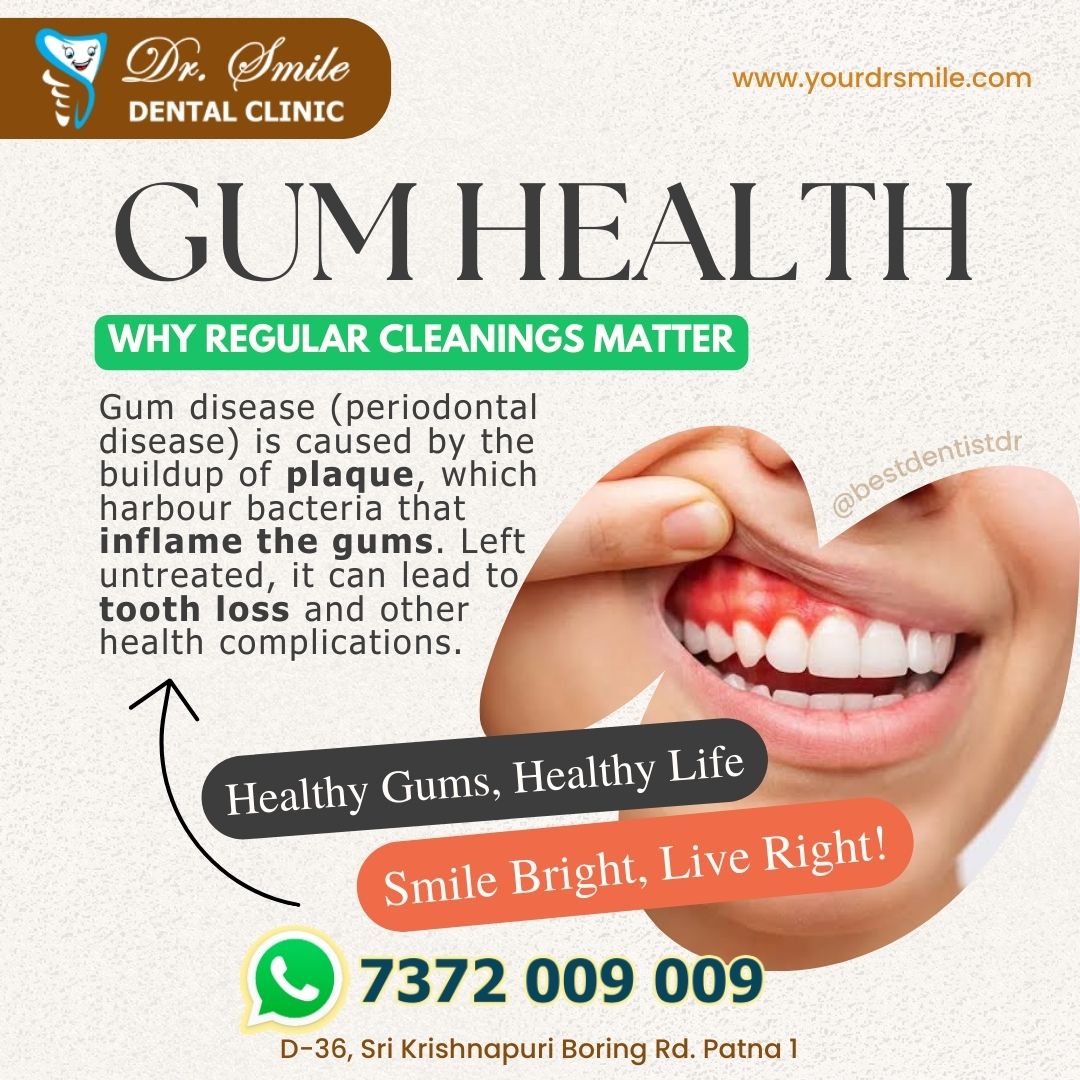Gum disease, also known as periodontal disease, is a common oral health condition that affects the gums and surrounding tissues of the teeth. If left untreated, it can lead to tooth loss and other serious health complications. The good news? Gum disease is preventable with the right knowledge and habits.
Tips for Preventing Gum Disease
- Practice Good Oral Hygiene
o Brush your teeth twice a day with fluoride toothpaste.
o Use a soft-bristled toothbrush to avoid damaging gum tissue.
o Floss daily to remove plaque and food particles from between the teeth and below the gumline. - Maintain a Healthy Diet
o Eat a balanced diet rich in fruits, vegetables, lean proteins, and whole grains.
o Limit sugary and acidic foods and beverages that can promote plaque buildup. - Visit Your Dentist Regularly
o Schedule dental checkups and cleanings every six months. These visits allow your dentist to spot early signs of gum disease and remove plaque and tartar that brushing alone can’t eliminate. - Avoid Tobacco Products
o Smoking and chewing tobacco significantly increase the risk of gum disease by impairing the immune system and reducing blood flow to the gums. - Stay Hydrated
o Drinking water helps rinse away food particles and bacteria, promoting a healthier oral environment.
Benefits of Regular Dental Cleanings
Regular professional dental cleanings are a cornerstone of oral health. Here’s why they’re so important:
- Prevents Plaque and Tartar Buildup
o Plaque hardens into tartar, which can only be removed by a dentist or hygienist. Tartar buildup can lead to gum inflammation and disease. - Protects Against Tooth Decay
o Cleanings remove plaque, the primary cause of cavities, protecting your teeth from decay. - Reduces the Risk of Gum Disease
o Professional cleaning targets areas that are hard to reach with regular brushing and flossing. - Fresher Breath
o Removing bacteria and plaque helps combat bad breath. - Early Detection of Oral Health Issues
o Regular visits allow your dentist to identify and treat problems like cavities, gum disease, and oral cancer before they become serious. - Improves Overall Health
o Gum disease has been linked to systemic conditions like heart disease, diabetes, and stroke. Maintaining gum health may reduce your risk of these conditions.
Debunking Myths About Tooth Sensitivity
Tooth sensitivity is a common concern, but misconceptions often prevent people from addressing it effectively. Let’s separate fact from fiction:
Myth 1: Tooth Sensitivity is Normal
• Fact: While mild sensitivity isn’t uncommon, persistent sensitivity could indicate issues like enamel erosion, cavities, or gum recession. Consult a dentist for proper diagnosis and treatment.
Myth 2: Sensitive Teeth Mean You Have Weak Teeth
• Fact: Sensitivity often results from enamel wear or exposed dentin, not from inherently “weak” teeth. Using fluoride toothpaste and avoiding acidic foods can help protect your enamel.
Myth 3: Brushing Harder Will Fix Sensitivity
• Fact: Brushing too hard can worsen sensitivity by wearing down enamel and irritating gums. Use a soft-bristled brush and gentle circular motions.
Myth 4: Sensitivity Toothpaste Doesn’t Work
• Fact: Desensitizing toothpaste is scientifically proven to help by blocking pain signals from the tooth’s nerves. Regular use is key to effectiveness.
Myth 5: Avoiding Cold or Hot Foods is the Only Solution
• Fact: While avoiding triggers can provide temporary relief, addressing the root cause of sensitivity is essential for long-term comfort.
Key Takeaways
- Prevent gum disease by maintaining excellent oral hygiene, eating a healthy diet, and avoiding tobacco.
- Get regular cleanings to prevent tartar buildup, detect oral health issues early, and keep your teeth in top shape.
- Understand tooth sensitivity to identify its cause and treat it effectively.
By following these guidelines, you can enjoy healthier gums, stronger teeth, and a brighter smile. Remember, prevention is always better than treatment, so stay proactive about your oral health!

